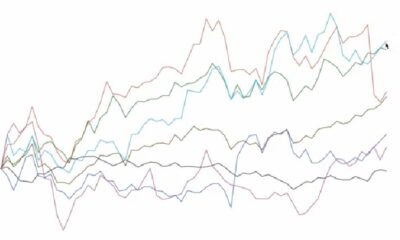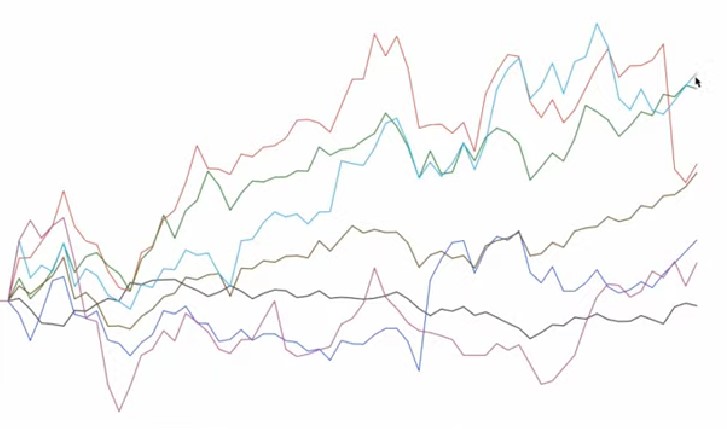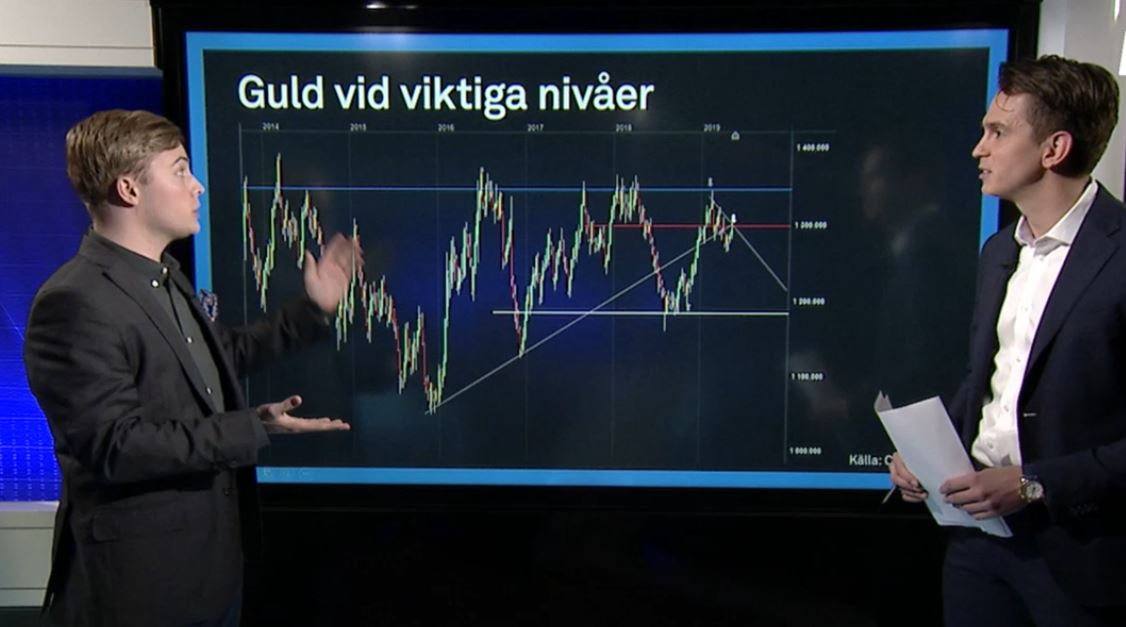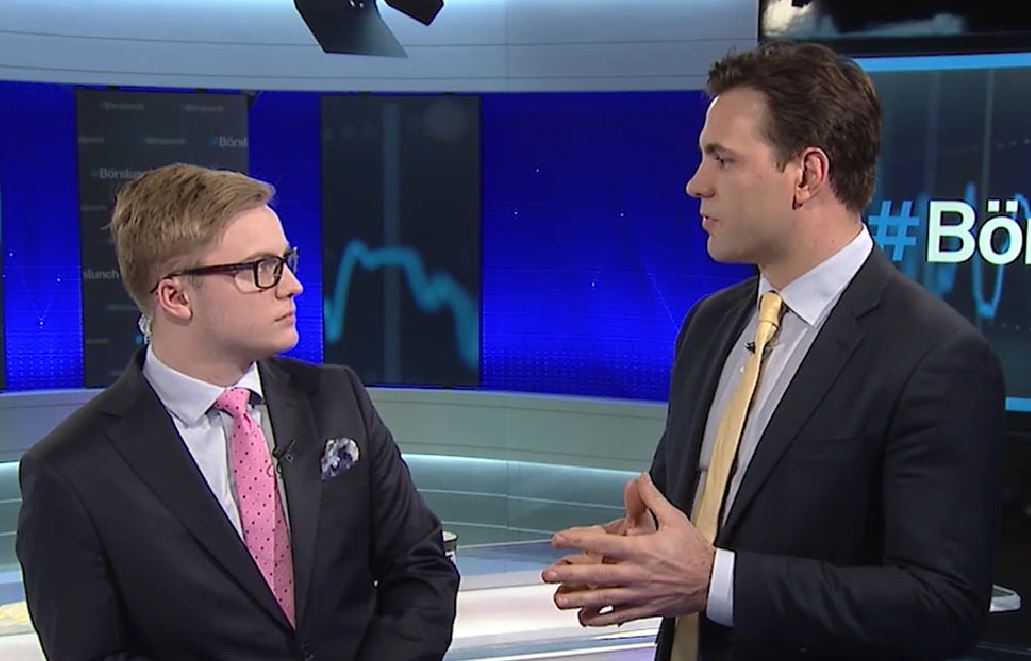Analys från DailyFX
Big News That Couldn’t Budge USD/NOK
Talking Points:
- Broad Trading Range That Has Yet to Be Broken
- Notable Divergence from MACD Indicator
- Fundamentals That Support NOK Strength
Since peaking above 6.22 in November, USDNOK has since established a broader trading range between 6.05 and 6.22, which has not been broken, even with significant policy news coming from the most recent Federal Open Market Committee (FOMC) meeting, where the central bank formally announced tapering of asset purchases.
Judging by the inability of the US dollar (USD) to take out the November highs against the Norwegian krone (NOK), it appears that tapering expectations were already priced in.
See recent: Too Much of a Good Thing for USD/NOK
Now, with the ‘’big’’ tapering news behind us, we still do have higher lows since the USDNOK bottom in September, although the pair has failed to make a higher high. In my humble opinion, we should ride out the ongoing fight between 6.05 and 6.22 in order to determine the prevailing direction for early 2014.
Guest Commentary: Range Trading Prevails in USD/NOK
Support: 6.05, 5.97-5.95, 5.90-5.87
Resistance: 6.22-6.25, 6.30, 6.50
After pricing in expectations for tapering by the Federal Reserve, the dollar posted strong gains against the krone in November, and USDNOK peaked right around the 6.22 level. Since then, the price action has been confined between 6.05 and 6.22.
It bears noting, however, that we see a negative divergence between price and the Moving Average Convergence/Divergence (MACD) indicator, which favors more consolidation or even a deeper pullback in USDNOK in upcoming weeks.
Even with higher lows, USDNOK failed to make a higher high since the bottom in September. The current landscape looks a bit unclear as well, which means that initiating positions in either direction involves higher-than-normal risk.
Furthermore, we do not have any clear short-term technical patterns that support a turning point for either bulls or bears. For that reason especially, I find it best to ride out the current trading range or wait for a better technical set-up before initiating any new positions in USDNOK.
Fundamental Factors in Play for USD/NOK
The Norwegian krone (NOK) has been weak throughout the fourth quarter of 2013, and this could boost Norway’s export industry in the year ahead. This NOK weakness is being caused by slow Norwegian economic growth, which is being driven by weaker growth in the oil industry, as well as in general construction and consumer spending.
Given the slowdown in oil investment, stronger export growth and more breathing room for the Norges Bank should keep the nation’s economy going and maybe even surprise to the upside. The new government, lead by Prime Minister Erna Solberg, supports the easing of bank credit policies in the year ahead, which should support a stronger housing market and general investments.
Furthermore, a stronger NOK may prevail in early 2014 because the currency is now weaker than the fundamentals in the Norwegian economy. It’s very possible that these oversold conditions have simply been caused by low liquidity in the market, and particularly in USDNOK, around the holidays.
Trade Idea for USD/NOK
Sometimes the best trade is no trade at all, and in the current conditions, it is best to be outside the market and simply observe USDNOK. Enter only when a favorable set-up emerges that provides the desired risk/reward profile.
I am currently looking for a reversal pattern in either direction in order to resolve the broad trading range that’s been established between 6.05 and 6.22. A ‘’perfect’’ set-up could be a washout of either longs or shorts in USDNOK, but for now, it is too difficult to see what the next tradable move will be for this pair.
In the meantime, while we wait it out, I wish all the readers at DailyFX.com a Happy New Year!
By Rafiul Hossain, Guest Analyst, DailyFX.com
Analys från DailyFX
EURUSD Weekly Technical Analysis: New Month, More Weakness
What’s inside:
- EURUSD broke the ‘neckline’ of a bearish ‘head-and-shoulders’ pattern, April trend-line
- Resistance in vicinity of 11825/80 likely to keep a lid on further strength
- Targeting the low to mid-11600s with more selling
Confidence is essential to successful trading, see this new guide – ’Building Confidence in Trading’.
Coming into last week we pointed out the likelihood of finally seeing a resolution of the range EURUSD had been stuck in for the past few weeks, and one of the outcomes we made note of as a possibility was for the triggering of a ’head-and-shoulders’ pattern. Indeed, we saw a break of the ’neckline’ along with a drop below the April trend-line. This led to decent selling before a minor bounce took shape during the latter part of last week.
Looking ahead to next week the euro is set up for further losses as the path of least resistance has turned lower. Looking to a capper on any further strength there is resistance in the 11825-11880 area (old support becomes new resistance). As long as the euro stays below this area a downward bias will remain firmly intact.
Looking lower towards support eyes will be on the August low at 11662 and the 2016 high of 11616, of which the latter just happens to align almost precisely with the measured move target of the ‘head-and-shoulders’ pattern (determined by subtracting the height of the pattern from the neckline).
Bottom line: Shorts look set to have the upperhand as a fresh month gets underway as long as the euro remains capped by resistance. On weakness, we’ll be watching how the euro responds to a drop into support levels.
For a longer-term outlook on EURUSD, check out the just released Q4 Forecast.
EURUSD: Daily
—Written by Paul Robinson, Market Analyst
You can receive Paul’s analysis directly via email bysigning up here.
You can follow Paul on Twitter at@PaulRobinonFX.
Analys från DailyFX
Euro Bias Mixed Heading into October, Q4’17

Why and how do we use IG Client Sentiment in trading? See our guide and real-time data.
EURUSD: Retail trader data shows 37.3% of traders are net-long with the ratio of traders short to long at 1.68 to 1. In fact, traders have remained net-short since Apr 18 when EURUSD traded near 1.07831; price has moved 9.6% higher since then. The number of traders net-long is 15.4% lower than yesterday and 16.4% higher from last week, while the number of traders net-short is 0.4% higher than yesterday and 10.5% lower from last week.
We typically take a contrarian view to crowd sentiment, and the fact traders are net-short suggests EURUSD prices may continue to rise. Positioning is more net-short than yesterday but less net-short from last week. The combination of current sentiment and recent changes gives us a further mixed EURUSD trading bias.
— Written by Christopher Vecchio, CFA, Senior Currency Strategist
To contact Christopher Vecchio, e-mail cvecchio@dailyfx.com
Follow him on Twitter at @CVecchioFX
To be added to Christopher’s e-mail distribution list, please fill out this form
Analys från DailyFX
British Pound Reversal Potential Persists Heading into New Quarter

Why and how do we use IG Client Sentiment in trading? See our guide and real-time data.
GBPUSD: Retail trader data shows 38.2% of traders are net-long with the ratio of traders short to long at 1.62 to 1. In fact, traders have remained net-short since Sep 05 when GBPUSD traded near 1.29615; price has moved 3.4% higher since then. The number of traders net-long is 0.1% higher than yesterday and 13.4% higher from last week, while the number of traders net-short is 10.6% lower than yesterday and 18.3% lower from last week.
We typically take a contrarian view to crowd sentiment, and the fact traders are net-short suggests GBPUSD prices may continue to rise. Yet traders are less net-short than yesterday and compared with last week. Recent changes in sentiment warn that the current GBPUSD price trend may soon reverse lower despite the fact traders remain net-short.
— Written by Christopher Vecchio, CFA, Senior Currency Strategist
To contact Christopher Vecchio, e-mail cvecchio@dailyfx.com
Follow him on Twitter at @CVecchioFX
To be added to Christopher’s e-mail distribution list, please fill out this form
-
Analys från DailyFX9 år ago
EUR/USD Flirts with Monthly Close Under 30 Year Trendline
-

 Marknadsnyheter2 år ago
Marknadsnyheter2 år agoUpptäck de bästa verktygen för att analysera Bitcoin!
-
Marknadsnyheter4 år ago
BrainCool AB (publ): erhåller bidrag (grant) om 0,9 MSEK från Vinnova för bolagets projekt inom behandling av covid-19 patienter med hög feber
-
Analys från DailyFX11 år ago
Japanese Yen Breakout or Fakeout? ZAR/JPY May Provide the Answer
-
Analys från DailyFX11 år ago
Price & Time: Key Levels to Watch in the Aftermath of NFP
-
Analys från DailyFX7 år ago
Gold Prices Falter at Resistance: Is the Bullish Run Finished?
-

 Marknadsnyheter1 år ago
Marknadsnyheter1 år agoDärför föredrar svenska spelare att spela via mobiltelefonen
-

 Nyheter6 år ago
Nyheter6 år agoTeknisk analys med Martin Hallström och Nils Brobacke











